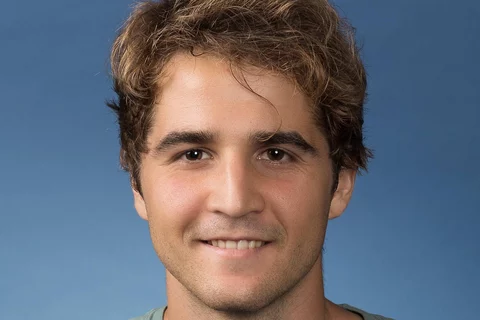Junior investigator Matthew Anderson receives Diversity Supplement from NIH

One way in which the National Institutes of Health (NIH) endeavors to be more inclusive is through its Diversity Supplement mechanism, wherein investigators of funded grants can apply for a supplement to that award for the purpose of supporting a researcher from a traditionally underrepresented group within the scientific workforce. Under Dr. Jason Hinman, an assistant professor in residence in the department of neurology at UCLA, Hispanic junior investigator Matthew Anderson was granted one of these supplement awards. Through this award, he will work alongside Dr. Hinman on his research project, “Measuring endothelial contributions to blood-brain barrier integrity using adeno associated viruses (AAV).”
Per Anderson, the CTSI was instrumental in this process as it provided him access to helpful and essential materials during the process of writing his grant application. “It was with these materials as reference that I was able to effectively structure the flow of information in my writing and properly orient my ideas,” he reports. Some of these resources included CTSI’s Sample Grant Library, which houses a repository of successful diversity supplements and the CTSI’s Grants Submission Unit (GSU) who assisted in this process by helping with administrative components of the Diversity Supplement application.
Anderson’s career began at Hamilton College, a liberal arts college in New York. The freedoms afforded by its curriculum allowed him to explore many different subjects and discover what he was passionate about, leading him to biology and neuroscience. As a result, he joined the Neuroscience Interdepartmental Program (NSIDP) at UCLA and commenced his research. This involved conducting experiments on a human organoid model and exploring the impact of various drug interventions on neural recovery after stroke in mice. Through his BRI-SURE summer fellowship at UCLA, he developed an interest in the mechanistic understanding of neurodegenerative disease. His dedication to this area of interest led to his first publication.
Upon joining Dr. Hinman’s lab as an undergraduate researcher, Anderson laid the groundwork for his current project, which revolves around understanding the role that cerebral microvascular disease (CMD) might play in the development of Alzheimer’s disease (AD). His hypothesis is that certain molecular pathways in the brain’s endothelial vessel cells become disrupted early in CMD. The novel aspect of his project is the use of an approach to tag and isolate the endothelial cells to effectively study them. According to Anderson, “this research will create a new tool to study disease beyond this project, and identify targetable molecular pathways that could enable new therapeutic directions in AD.”
Anderson recognizes the profound societal impact of both vascular disease and neurodegeneration, which presents an excellent opportunity to develop as a researcher and apply his training towards addressing these needs. His broader short and long-term career goals consist of developing technical and professional competence in the context of molecular neuroscience research. He believes his current work, made possible with the Diversity Supplement, will improve his aptitude for working in an industry research setting, building to a career focused on understanding and enabling new therapeutic directions for neurodegenerative disease.
When asked for what advice he might have for others early in their careers, Anderson made clear that he aspires to share his directive and expertise as a researcher from a mentorship perspective as he interacts with both undergraduate and professional students. “I encourage anyone to seeking to pursue a similar path to do so with both feet forward, as at many points throughout the process of my career I carried my own doubts about whether I would experience success,” Anderson says. “It was through sheer persistence and initiative taken to learn from both successes and failures that allowed me to continue forward when situations seemed otherwise difficult or unlikely.”
Image Source: Matthew Anderson



